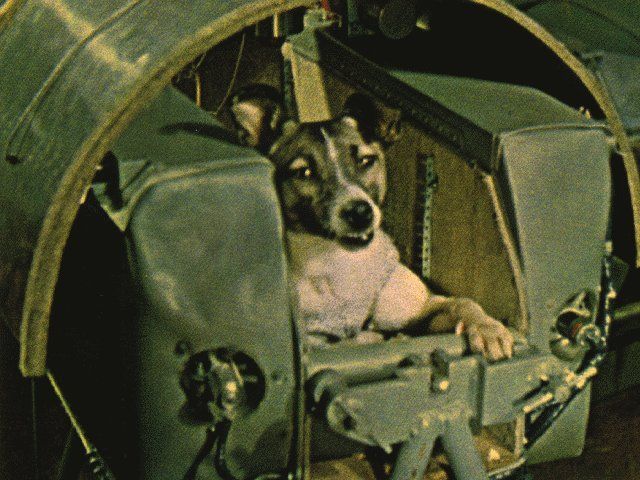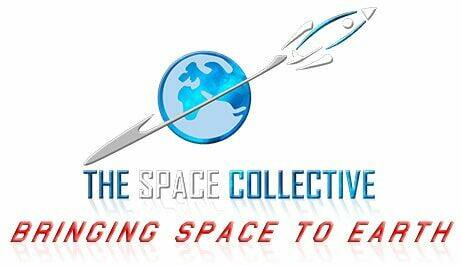LAIKA THE STREET DOG
To anyone who loves dogs (psst, that should be all of you), Laika's name should ring out alongside other famous dogs such as Lassie and Beethoven. But Laika was from a different time, she was a small street dog found on the streets of Moscow. The scientists at the time decided that a street dog would be a perfect fit for their one-way mission, this was, at least in part, because a street dog would be able to endure the hardships of the Russian winters and lack of available food. If you're reading this and thinking "that's just wrong", that's because it is. Ethics clearly didn't play a part in the Cold War space race.

One must remember that in the early days of spaceflight, scientists were unsure as to whether or not humans could survive in space. In fact, they didn't even know if humans could eat or drink in space. It seems such a trivial question by today's standards, but it was an important question back then. But those answers most certainly could have been answered without sacrificing Laika and there were many astronauts willing to do so.
Alan Shepard is a fine example. Ham the Astrochimp was the first hominid to launch into space, much to the annoyance of Shepard, who declared that it was unnecessary and that the flight should have been his. How much of that decision was tied behind not wanting to see a chimp sent into space, we don't know, but most likely it was fuelled by a desire to beat the Russians. Something which by the way the Americans would have done had they simply listened to him. If there is a finer example of using animals in science holding the field back, this is it. Although unlike Laika, Ham survived the flight and lived in a Zoo thereafter.
Laika did not survive her flight and the scientists at the time knew she would not, they knew it was a one-way trip and they sent her up there anyway in the pursuit of science. But sadly, there is more. A little known fact is that Laika was subjected to surgery in which cables from transmitters were fed through parts of her body so that her breathing, blood pressure and pulse could be monitored. No stone unturned as they say.
Science has given the world a great many things, it has cured disease, given us technologies that half a century before would be considered science fiction, but it has come at a cost. That cost is our morality. Though as fortune would have it, today, in our wonderful world of advancement there are alternatives to almost everything. Organs-on-a-chip could spell the end for animal testing on Earth, so long as there is enough will to enforce it. The same can be said of spaceflight. We can do anything, but we must do it right. We must accept the things done wrong in the past, accept the immoral and choose to change.
It is important that we remember the injustices of past science so that we may pave a way forward, both technologically and morally, for, without one, the other is meaningless. If we are to truly become a spacefaring species worthy of the achievement, we can and certainly must do better, together, as a species.
For those of you who want to celebrate Laika and her sacrifice, do so by sharing her story and let it never be forgotten, and remember to speak for change anytime you can. Support the organizations that aim to change the world for the better. It is even rumored that Silver Lucy London is developing a Laika charm pendant and are donating a portion of the sale to charities aimed at ending testing on animals, so there is always something you, I and everyone else can do.
For the good of this Earth and every living creature on it, let us do better!
